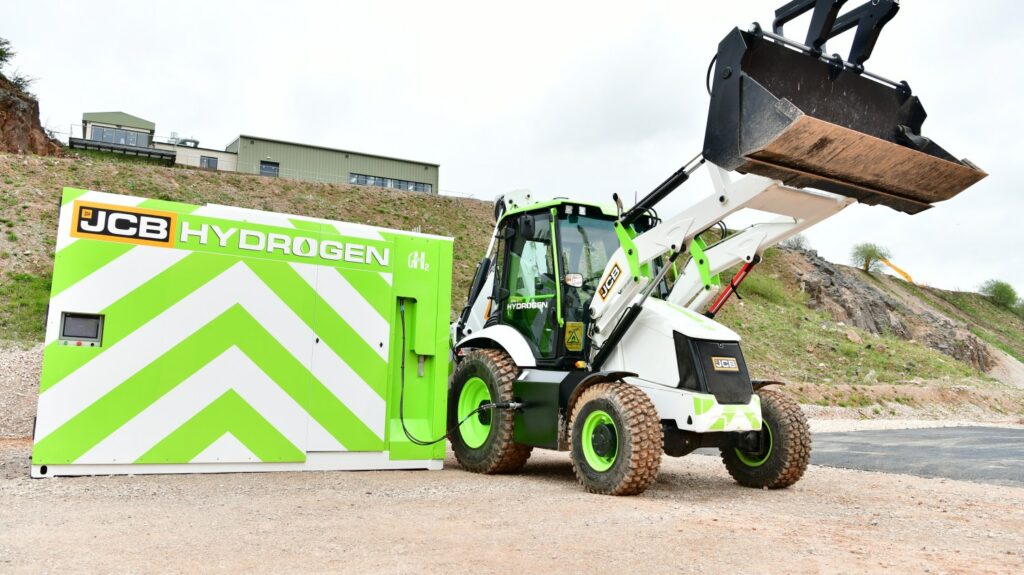Hydrogen-powered construction machinery can now legally operate on UK roads—a change poised to reshape the future of decarbonization in heavy equipment.
The legislative amendment, which came into effect on April 29, updates the Road Vehicles (Construction and Use) Regulations 1986 to permit hydrogen-fueled non-road mobile machinery, including diggers and tractors, to travel between worksites and farms. Until now, road access had been limited to hydrogen-powered vehicles such as cars, buses, and trucks.
JCB, one of Britain’s largest equipment manufacturers, stands at the centre of this development, following its £100 million investment in hydrogen combustion technology. The company’s hydrogen-powered diggers and loaders are being positioned as a viable zero-emission alternative to diesel in off-grid and high-load environments.
To mark the occasion, a JCB hydrogen digger paraded through central London, symbolically stopping at the Department for Transport to recognise the policy milestone. The amendment was facilitated by Transport Minister Lilian Greenwood, whose endorsement of the statutory instrument was pivotal to unlocking road access for these machines.
Hydrogen internal combustion engines (H2ICE) offer a lower barrier to adoption compared to fuel cells or battery-electric alternatives, as they rely on established supply chains and maintenance knowledge.
From a technical standpoint, JCB’s hydrogen engine technology has been developed at its Derbyshire facility, with field trials underway in collaboration with UK contractors and equipment rental firms. The company has already deployed hydrogen-powered Loadall handlers, backhoe loaders, and generators across multiple UK sites. Initial feedback highlights operational consistency, quick refueling, and strong performance under load—factors critical in high-utilization construction and agricultural applications.
The new regulatory clarity may catalyse hydrogen infrastructure development as well, since machines can now legally move between refueling hubs or job sites without the need for diesel transportation. This could reduce scope 3 emissions and streamline logistics in project planning. However, infrastructure bottlenecks remain a concern. As of 2025, the UK’s hydrogen refueling network for heavy-duty and off-road machinery is still in its infancy, with limited commercial supply points outside of pilot locations.
Stay updated on the latest in energy! Follow us on LinkedIn, Facebook, and X for real-time news and insights. Don’t miss out on exclusive interviews and webinars—subscribe to our YouTube channel today! Join our community and be part of the conversation shaping the future of energy.





